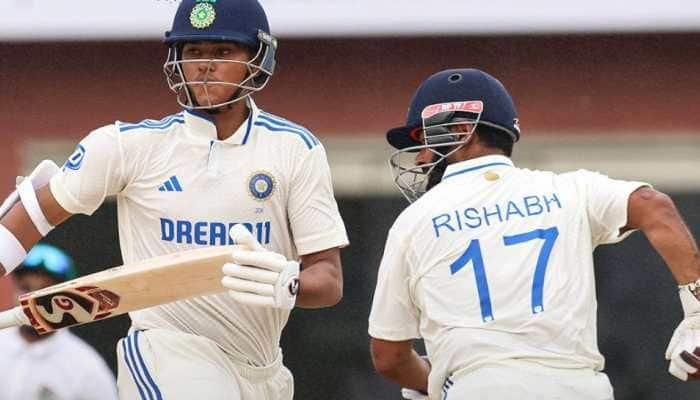Realism over illusionary positivity: Need for legalising euthanasia
Euthanasia, a word that's been dicing in and out of the Indian Legal System's scenario for decades now, is of two types; Active and Passive, active being doing of a deliberate action to cause a patient to die and passive being stopping life-saving treatment in order to letting the life of patient end its natural way, gradually.
Trending Photos
)
New Delhi: Euthanasia, a word that's been dicing in and out of the Indian Legal System's scenario for decades now, is of two types; Active and Passive, active being doing of a deliberate action to cause a patient to die and passive being stopping life-saving treatment in order to letting the life of patient end its natural way, gradually.
In this milieu, the disputation of the controversial theme of euthanasia, the passive type being allowed, the need for allowing active type is in question, and in my opinion, the anticipated amendment in our Law Statutes.
"I will give no deadly medicine to any one if asked, not suggest any such counsel!"said by Hippocrates, Father of Modern Medicines Versus
"Death solves all problems...no man, no problem."... Joseph Stalin
From time immemorial, the debate on legalisation of Euthanasia has been going on, not just in India but the world.
In my view, 'Right to Life' under Article 21 of the Constitution should extend its purview over Right to Die. As important as it is to have one's 'Right to Life' in place, it is equally important to allow one to maintain his 'Right to Die', of course in certain peril situations only.
The ArunaShaunbagh case, with spine-chilling facts, and so-called optimism oriented judgement by Supreme Court has led the fumes to fire among both, the favourers and non-favourers of Euthanasia. Supreme Court further asked the Parliament for elimination of Section 309 from the Indian Penal Code, considering it to be a threat to constitutional value of Article 21 after the case of GianKaur vs. StateofPunjab was presented in the Court.
Although, certainly there is a need to endorse Supreme Court's word in the same case of reading Section 306 and Section 309 of the Indian Penal Code independently, wherein the claim being attempt to commit suicide and abetment to suicide may not be read together and have their own place in the Statute, independent of each other.
The 210th Reportof Law Commission on Humanization and Decriminalisation of Attempt to Suicide reads, "No wonder so long as society refuses to face this reality its coercive machinery will invoke the provision like Section 309 I.P.C. which has no justification right to continue remain on the statute book."
Anti-euthanasia debaters content that if 'Right to life' would include 'right to die', then it would be incompatible and inconsistent with the concept of the former.
But, what needs to be noted herein, is that, the caretakers of such patients who are in conditions worse than that of a corpse, exercise exactly the same 'right to live' as well, without having to stretch out their efforts, money and patience on someone for 37 years, the end of which is again, death. The Right would not include just mere existing, but the right to a dignified lifestyleas well. Therefore, there should absolutely be no quandary when one thinks of possessing the right to die if one is waning out anyway, unfortunately painfully.
One of the main issues raised here is 'emphasis on care' by medical practitioners, quite contrary to what patients expect and seek out of them, which is 'emphasis on cure'. Over the years, science developed till extents of prolonging one's life but could not outreach nature's command of ultimate death. If the perpetuation is as sorrowful and miserable for the patients and the caretakers as the disease or circumstances of one's condition initially, then there is no reason as to why with the sufferer's consent, can euthanasia not be legalised. The intention of providing palliative care at low-cost methods if there is no scope of cure could metaphorically replace the notion of letting off the burden from one's own moral conscious and infuse the agony of gradual death in another body.
Another attempt made for adding a feather to their hat by the anti-euthanasia preachers is that the patients afflicted by chronic mental illnesses like that of depression, schizophrenia and different types of substance abusers, are subject to taking their life as a psychiatric emergency, which in it's true sense is a call for help or assistance.
But then, the demand for legalisation of euthanasia is not for such patients. There must, most definitely, be measures taken before granting the permission of euthanasia to a patient, like, the request being voluntary, well-considered and lasting, conviction of the fact that the pain faced by the patient is unremitting and unbearable, consent of the patient after informing him about his prospectus or situation, absence of any alternative solution, due consultancy of an informed physician and termination of life in a medically appropriate fashion.
Taking their refuge under Supreme Court's judgement onP. Rathinam's case andBirdichand Mishrilal vs. State of Maharashtra case, the anti-euthanasia preachers cite instances as to when a person suffering mental illness would be prone to commit suicide mentioned therein. However, the same case cites 'The individual does not destroy himself in hope of thereby achieving a noble post mortem reputation or a place among the eternally blessed.
Instead he wishes to subtract himself from a life whose equality seems a worse evil than death,' written by eminent psychiatrist RobertJ.Kastenbaum in his book 'Death, SocietyandHumanExperience'. This absolutely affirms the contrary stance. Therefore, the demand of legalisation of euthanasia is a logical and legitimate one and not just for ending life like it's ordinary.
Realistically speaking of the availability of our country's medical facilities, adhering to the demand of legitimating euthanasia would prove to a boon for the other poverty-stricken, aged and jeopardised patients who do have chances of being saved and living a sedate life. Thus, the idea of extending the vision from protecting and caring for one cadaver-like person to another hale person which would save finances and physical, social and emotional efforts of both, caretakers and medical institutions, holds much more wisdom in itself rather than sermonizing the Constitutional flavour of positivity in despaired situations.
The advantage of sanctioning Euthanasia would encourage the idea of organ donation which could help many patients waiting for transplantation of organs but are left exposed due to lack of the same. When one life would end, it could give out life to another person, struggling to be saved.
Our Constitution has always been subject to many interpretations of various articles and provisions provided in it. The landmark judgements in many cases have been capable of quashing the existing antecedents and making yet another point of view come to limelight and stretching it out unless there is another judgement passed countering the same.
They say sometimes that nature has been cruel by taking away a life. But, there are times when nature becomes ruthless and makes one's life as that of a living dead, killing the person each day.
The innate need of medical practitioners and our judiciary of 'holding on to' for the mere sake of maintaining the positive element of our Constitution give torture and desolation to many patients. With the advancements seeping in, another idea which needs to be ingrained in the mindsets is of 'letting go'. Apart from the logical and legal point of view, there is another basis of morality involved in any sensitive issue as this one. The exertion of not allowing a man to exercise his right to die in the broader term of right to life is probably because our authorities are quite unsure of their capabilities in deciding according to the facts of a particular case, to free a man of his misery for his own good. The fear of being questioned about the judgement to end a life with consent of the patient, probably, is weakening the judiciary as it hesitates from taking an unflinching decision in this cause.
'Right to life' and 'right to die' and interlinked and connected deep through.
"Euthanasia is a long, smooth-sounding word, and it conceals its danger as long, smooth words do, but the danger is there, nevertheless." - Pearl Buck
The views expressed in the above article are that of Mr. Harsh Trivedi of the Campus Law Centre, University of Delhi.
Stay informed on all the latest news, real-time breaking news updates, and follow all the important headlines in india news and world News on Zee News.
Live Tv







)
)
)
)
)
)
)
)
)
)
